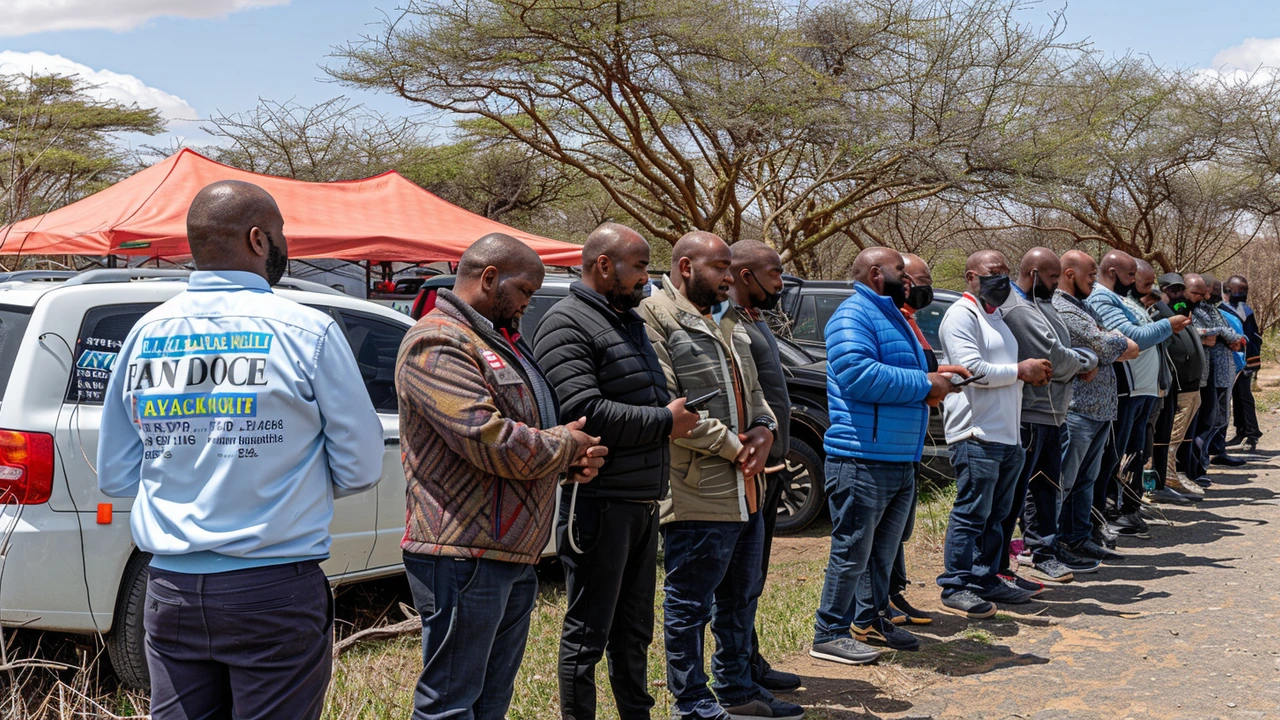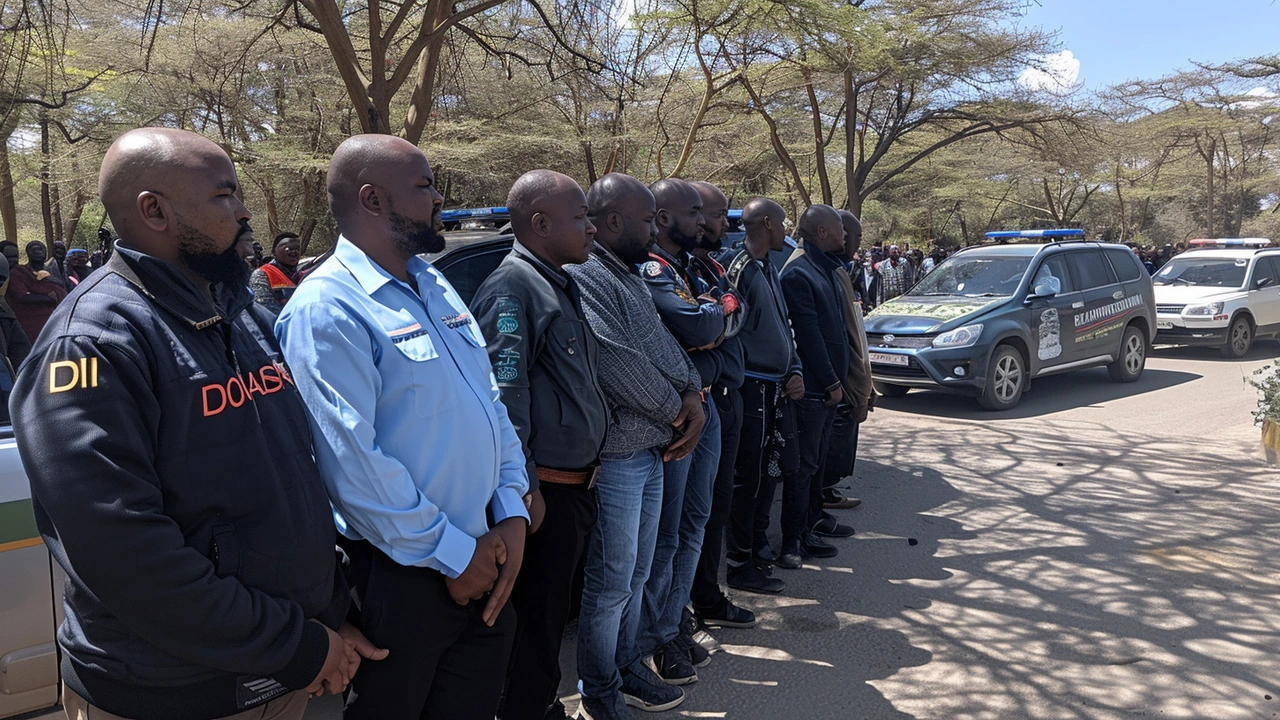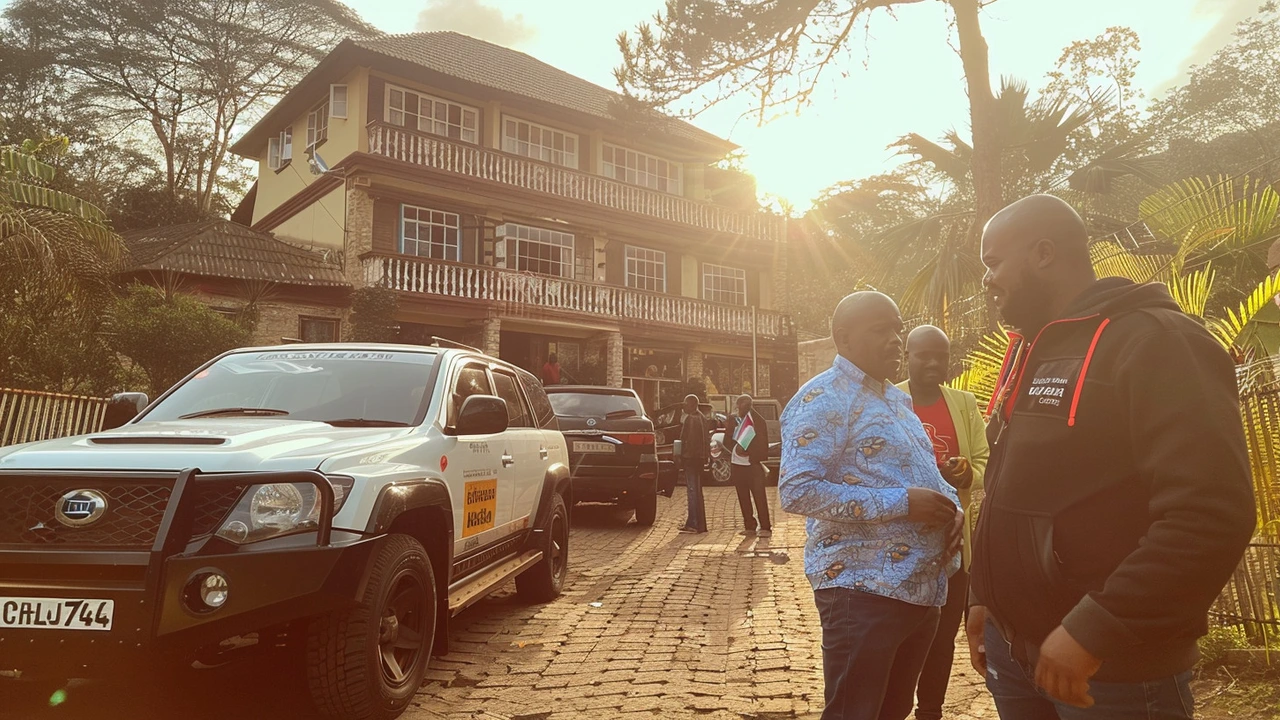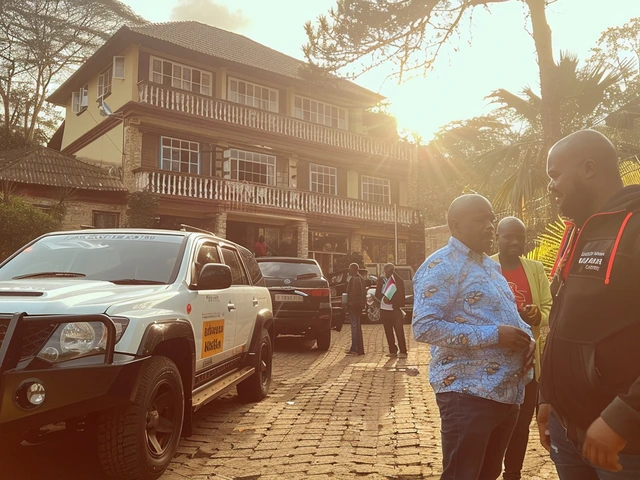Mutunga and Boniface Mwangi Lead Charge Against Abductions and Finance Bill 2024 at DCI Headquarters
In a move resonating with animated public fervor, retired Chief Justice Willy Mutunga, flanked by a host of activists including Boniface Mwangi, Hussein Khalid, and Hanifa Adan, spearheaded a protest at the Directorate of Criminal Investigations (DCI) headquarters on Kiambu Road.
This assembly of determined individuals aimed to deliver a petition vehemently opposing the Finance Bill of 2024 while simultaneously drawing attention to a grave issue—the alleged resurgence of abductions targeting peaceful demonstrators. Mutunga, known for his unwavering commitment to justice, stood firm in his assertion that these abductions are a blatant violation of the constitution.
Boniface Mwangi, a notable figure in the realm of activism, shared a harrowing incident where he and several others narrowly escaped an abduction attempt near City Mortuary. His words painted a chilling picture of a nation grappling with a recurrence of what he termed the 'Yala River era,' despite President William Ruto's earlier pledge to eradicate such sinister practices.
Hussein Khalid, another prominent voice in the protest, emphatically stated the group's resolve to protect Kenyans' rights against oppressive taxation proposed in the Finance Bill. The activists, undeterred by potential dangers, emphasized their readiness to put their own lives on the line if necessary.
The police presence at the DCI headquarters was palpable, with officers ensuring that only Mutunga, Mwangi, Khalid, and their legal representatives were permitted to enter the building. The surrounding protesters were kept at a considerable distance, a strategic move perhaps aimed at maintaining order during these tension-filled moments.
The Unfolding of a Protest Movement
As the activists presented their petition inside the DCI headquarters, the atmosphere outside was charged with palpable tension and hope. Their collective action was not just a protest but also a statement against what they perceive as systemic injustices plaguing their country.
The significance of this protest cannot be overstated. It marks a pivotal moment where citizens and their representatives are drawing a clear line in the sand against policies and actions that they find repressive. The Finance Bill 2024 has been particularly contentious, sparking debates about fair taxation and economic justice in a country where many already struggle to make ends meet.
Equally important is the issue of abductions. Mwangi's recollection of the close call near City Mortuary echoes the fears of many Kenyans who worry about their safety in a climate they feel is reminiscent of darker times. These concerns are amplified by reports of individuals being arrested and held without communication, a practice that undermines the rule of law and erodes public trust in governmental institutions.

A Historical Context of Abductions
It's crucial to understand the historical context within which these events are unfolding. The term 'Yala River era' refers to a troubling period in Kenya's history marked by numerous bodies being discovered in Yala River, victims of suspected extrajudicial killings. This era is a haunting reminder of the lengths to which power can be abused, and the fear it instills in the populace.
The activists' references to this era underscore their alarm at what they see as a revival of such practices. The promises made by President William Ruto to end these human rights violations are being scrutinized under the harsh light of current events. For activists like Mutunga and Mwangi, the resurgence of abductions not only signals a failure to honor these promises but also represents a direct threat to civic freedoms.
Economic Implications of the Finance Bill 2024
The Finance Bill of 2024 is another focal point of contention. The bill proposes several tax measures that activists argue will disproportionately burden the poor and middle class. Critics of the bill assert that it exacerbates existing inequalities, pushing the most vulnerable segments of society further into poverty.
Hussein Khalid's statement about the need to defend Kenyans' rights reflects a broader discontent with how economic policies are drafted and implemented. There's a growing sentiment that such decisions are made without adequately considering their potential impact on everyday citizens. The protest at the DCI headquarters thus becomes a microcosm of wider socio-economic struggles.
Legal and Constitutional Challenges
Mutunga's emphasis on the unconstitutionality of abductions highlights the legal battles that lie ahead. The constitution of Kenya, like many democratic constitutions worldwide, enshrines the protection of individual rights and freedoms. Any deviation from these principles, particularly by the state, is not only a legal issue but a moral one.
The involvement of legal representatives in the protest signals a readiness to challenge these violations in court. The law, in theory, should serve as a bulwark against tyranny and abuse. However, the practical enforcement of legal safeguards is often fraught with challenges, especially when state actors are implicated.
For the activists, the road ahead is undoubtedly perilous but they remain undeterred. Their actions serve as a clarion call to other citizens to stand up against injustices and to hold their leaders accountable for their promises.
Public Response and Media Coverage
The protest at the DCI headquarters has triggered a wave of public response, both in support and opposition. On social media, hashtags related to the protest and the issues at hand have trended, reflecting a nation deeply divided yet highly engaged.
Media coverage has been extensive, with many outlets highlighting the bravery of the protesters and the gravity of their accusations. Headlines have been dominated by the clash between the activists and the state, with analyses and editorials delving into the broader implications of these events.
The press has, in many ways, played a pivotal role in bringing these issues to the forefront of public consciousness. By documenting the protest and the stories of those involved, the media helps ensure that the issues at the heart of the demonstration receive the attention they deserve.

The Path Forward
As the dust settles on the events at the DCI headquarters, the question on many minds is: What next? The activists have made it clear that their struggle does not end with the submission of their petition. They have laid down a gauntlet, challenging the state to rectify the alleged injustices and to reconsider the economic policies encapsulated in the Finance Bill 2024.
For Mutunga, Mwangi, and their colleagues, the fight for justice and equitable policies is a marathon, not a sprint. Their actions have galvanized support and brought critical issues to light, but sustaining momentum will be key to achieving lasting change.
Kenya stands at a crossroads, and the choices made in response to these protests and the issues they highlight will shape the nation's future. It remains to be seen how the government will address these concerns and whether it will engage with the activists in a meaningful dialogue.
Ultimately, the protest at the DCI headquarters is a testament to the enduring spirit of resistance and the power of collective action. It underscores the importance of vigilance in safeguarding rights and ensuring that economic policies serve all citizens fairly.
As the nation watches and waits, one thing is certain: the voices raised at the DCI headquarters will not be silenced easily. Their call for justice, equity, and accountability reverberates with a promise of continued struggle and hope for a better future.






Post A Comment